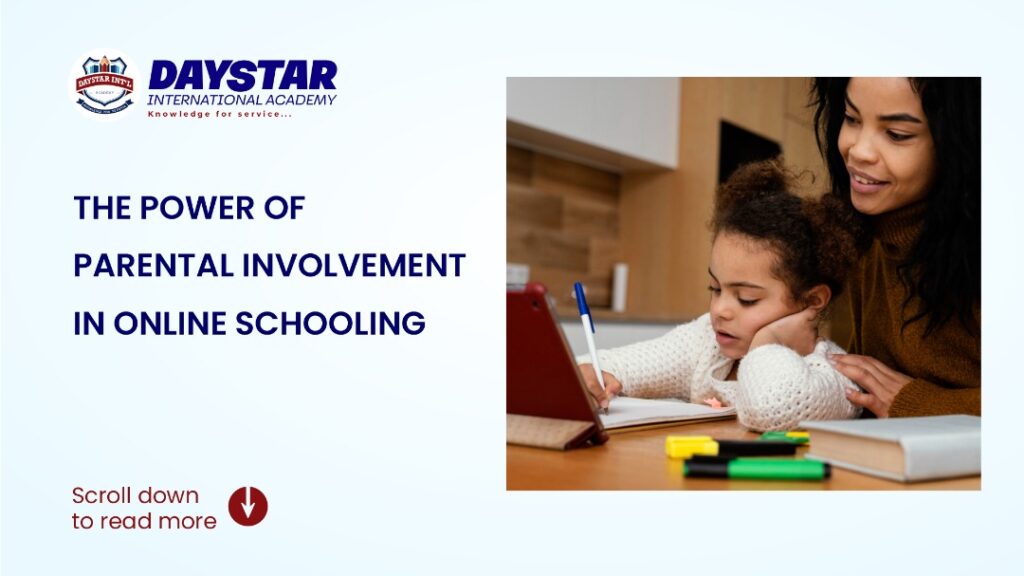
“I’m Not a Teacher—But I Want to Help”: The Real Power of Parental Involvement in Online Schooling
It’s 8:15 a.m.
Imagine you have one earbud in a virtual work meeting while laying out breakfast, and your 6-year-old daughter is booting up the laptop, school ID card pinned to her chest like a badge.
“I’m not sure I’m doing this right,” she says, fiddling with the mouse.
And you lean in, smile, and say, “Neither am I, but we’ll figure it out together.”
That’s what parental involvement looks like.
Not perfection. Not lesson plans.
Just presence, patience, and shared purpose.
🌱 Why Parents Are Still the Most Powerful Teachers
Children may attend school online, but they learn everywhere, especially at home.
They absorb:
- How we solve problems
- How we speak to them
- How we handle pressure
- How we celebrate wins (and survive flops)
When parents actively engage with their child’s virtual learning experience, research shows they perform better academically, socially, and emotionally.
Not because the parent has all the answers, but because they show up.
💻 What Involvement Really Means (Beyond Sitting Next to Them All Day)
Some parents imagine they need to shadow their child every hour or learn how to use every app the school provides. But involvement isn’t surveillance.
It looks more like this:
🪑 Creating a Sense of Space
It’s less about the size of your home, and more about routine. A child’s corner with a water bottle, a pencil cup, and a sticky note that says “You’ve got this!” can do wonders for mindset.
🕘 Consider Creating Daily Check-ins
Instead of trying to track everything your child is doing, you might try building a small habit of checking in with them, just once in the morning and once in the evening.
You could ask:
- “What are you excited or curious about today?”
- “What did you learn that surprised you?”
It’s a simple way to create connection and invite your child to reflect on their learning without pressure. Feel free to make it your own, some families do it over breakfast, others during evening walks.
📣 Support Through Gentle Advocacy
Sometimes, it’s not about fixing a problem, it’s about helping your child be seen and heard.
You might step in when:
- The internet cuts out and your child misses’ part of a lesson
- A login doesn’t work and they’re too anxious to tell the teacher
- They’re struggling to speak up in class, maybe due to shyness, speech challenges, or even accent barriers
In those moments, advocacy can look like:
- Quietly messaging the teacher to explain what happened
- Helping your child rephrase a question they’re trying to ask
- Encouraging them to express what they’re feeling, then guiding them to find the right words
It’s not about speaking for them. It’s about creating the space and giving the gentle nudge they sometimes need to find their own voice.
🎉 Celebrating Effort, Not Only Achievement
Praise them for showing up, for staying in class patiently or for trying again after an error.
Online learning can feel invisible. Your affirmations make their effort real.
📖 Modeling the Learning Life
Read with them. Google with them. Ask questions out loud like, “Why does the moon look different tonight?”
Learning becomes a family culture, not just a school requirement.
🧠 Real Talk: What If You’re Busy, Tired, or Unsure?
Then you’re like most parents.
The truth is, your child doesn’t need a full-time learning assistant. They need a stable presence. Someone who sees their effort. Someone who cheers, even when they’re learning the hard way.
And for the record, you are doing enough.
🌟 Final Thought: Your Presence Is the Strategy
At Daystar, we believe learning is a three-way bridge: child, teacher, and parent.
You don’t have to be perfect, polished, or present at every moment.
Just be reachable. Be responsive. Be the kind of support you would have wanted when you were learning something new.
That alone builds confidence that lasts a lifetime.

